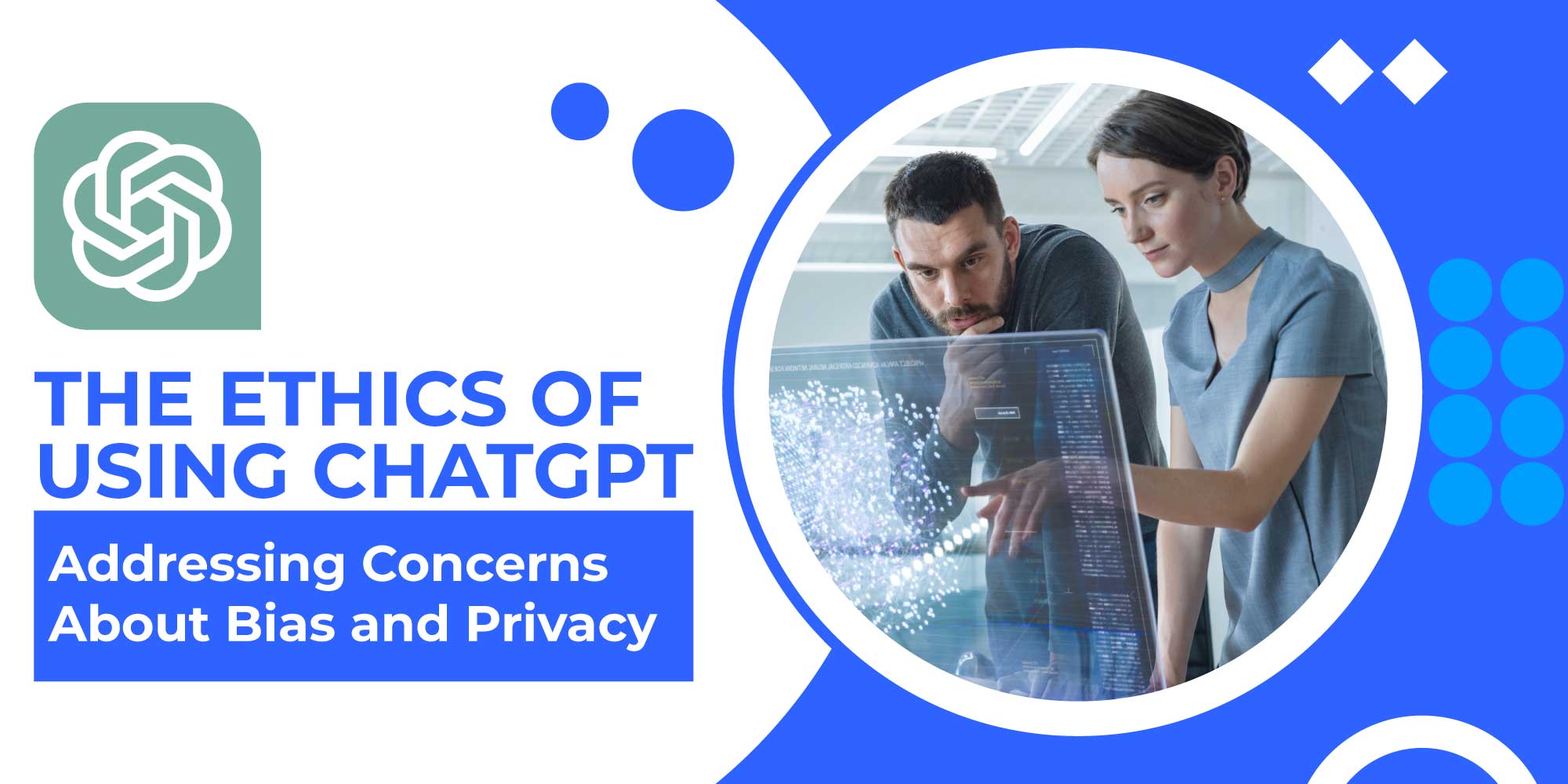FTC Probes OpenAI's ChatGPT: Data Privacy And Algorithmic Bias Concerns

Table of Contents
Data Privacy Concerns surrounding ChatGPT and Similar AI Models
The use of AI models like ChatGPT raises significant data privacy concerns. Understanding how these models collect, store, and utilize user data is crucial for responsible AI development and deployment.
Data Collection and Usage Practices
ChatGPT, like other large language models (LLMs), collects vast amounts of user data to function effectively. This data includes:
- User inputs: Every prompt or query entered by a user is recorded.
- Model responses: The chatbot's generated responses are also logged.
- User interactions: The entire conversation history, including edits and deletions, might be collected.
This extensive data collection raises concerns about:
- Sensitive data breaches: Users might inadvertently share personal information, including medical details, financial data, or other sensitive details, within their prompts. A data breach could expose this sensitive information.
- Unauthorized access: The potential for unauthorized access to the vast datasets used to train and operate these models poses a significant risk. Robust security measures are essential to prevent such breaches.
- Lack of transparency: OpenAI's data usage policies may lack transparency, making it difficult for users to understand precisely how their data is being used. This opacity undermines user trust and informed consent. Legal frameworks like GDPR and CCPA demand transparency and user control over data.
The consequences of data breaches can be severe, leading to identity theft, financial loss, and reputational damage for both users and OpenAI. Anonymizing user data used to train AI models is also challenging, further compounding the privacy risks.
User Consent and Informed Choices
A critical aspect of data privacy is obtaining informed consent. Does OpenAI adequately inform users about its data collection practices?
- Level of user consent: The level of consent obtained by OpenAI for data collection is a key area of scrutiny. Many users are unaware of the extent of data collection or the implications of their interactions.
- Clarity of privacy policies: The clarity and comprehensiveness of OpenAI's privacy policies are paramount. Are these policies easily understandable for the average user, or are they overly technical and difficult to navigate?
- Meaningful consent: Obtaining meaningful consent for AI data processing is challenging, especially for complex technologies like LLMs. Users need to clearly understand what data is being collected, how it will be used, and the potential risks involved.
Are users adequately informed about how their data is used to train and improve the AI model? The ability to withdraw consent and control personal data usage is a crucial element of meaningful consent.
Algorithmic Bias and its Implications in ChatGPT
Algorithmic bias is a significant concern with AI models like ChatGPT. The biases present in the training data inevitably influence the model's outputs, leading to unfair or discriminatory results.
Sources of Algorithmic Bias in Large Language Models
The training data used to create LLMs like ChatGPT is vast and often comes from the internet. This data reflects existing societal biases, which are then amplified by the model:
- Bias in training data: Biases related to gender, race, religion, and other sensitive attributes can be present in the vast text and code datasets used for training.
- Reinforcement learning: The reinforcement learning methods used to refine the model can further exacerbate existing biases if the feedback data itself is biased.
- Challenges in mitigation: Identifying and mitigating these biases is incredibly challenging, requiring careful data curation and algorithmic adjustments.
Examples of biased outputs include stereotypical portrayals of certain groups, reinforcement of harmful stereotypes, or the generation of offensive or discriminatory content.
The Impact of Biased AI on Fairness and Equity
Biased AI outputs can have severe consequences, perpetuating and exacerbating existing societal inequalities:
- Perpetuation of inequalities: Biased AI can reinforce existing societal biases, leading to unfair or discriminatory outcomes in various applications, from hiring processes to loan applications.
- Impact on vulnerable populations: Vulnerable populations are disproportionately affected by biased AI systems, further marginalizing already disadvantaged groups.
- Need for fairness and accountability: Fairness and accountability are crucial in the development and deployment of AI systems. This necessitates rigorous testing and mitigation of biases.
The ethical responsibilities of AI developers are paramount. They have a duty to actively mitigate bias and ensure fairness in their models. Failure to do so can lead to legal challenges and reputational damage.
The FTC's Investigation and its Potential Outcomes
The FTC's investigation into OpenAI's ChatGPT focuses on potential violations of data privacy laws and unfair business practices.
Scope of the FTC Investigation
The FTC's investigation likely covers:
- Data collection practices: The FTC is likely scrutinizing OpenAI's methods of collecting, storing, and using user data, particularly concerning the collection of sensitive information.
- Compliance with data privacy laws: The FTC is assessing OpenAI's compliance with data protection laws, including GDPR and CCPA.
- Transparency and user consent: The FTC will likely examine the clarity and comprehensiveness of OpenAI's privacy policies and the methods employed to obtain user consent.
The FTC has broad powers to investigate and enforce regulations related to data privacy and unfair business practices.
Potential Consequences for OpenAI
If the FTC finds OpenAI has violated data privacy laws or engaged in unfair or deceptive practices, the consequences could be significant:
- Financial penalties: OpenAI could face substantial fines.
- Regulatory changes: The investigation could trigger wider regulatory changes affecting the AI industry.
- Reputational damage: Negative publicity and a loss of user trust could significantly impact OpenAI's business.
The FTC's investigation has broader implications for the AI industry. It serves as a warning to developers about the need for responsible AI development and data privacy compliance.
Conclusion
The FTC's investigation into OpenAI's ChatGPT underscores the urgent need for robust regulations and ethical guidelines surrounding the development and deployment of AI. Data privacy concerns and algorithmic bias pose significant risks to individuals and society. Addressing these issues requires a multi-faceted approach involving collaboration between policymakers, researchers, developers, and users. The future of AI, including the responsible use of ChatGPT and similar technologies, depends on ensuring fairness, transparency, and accountability. We must demand greater transparency and user control over our data. Let's continue to monitor the FTC's probe into OpenAI's ChatGPT and advocate for responsible AI development.

Featured Posts
-
 Craig Mc Ilquham Hells Angels A Sunday Memorial Service
May 25, 2025
Craig Mc Ilquham Hells Angels A Sunday Memorial Service
May 25, 2025 -
 Philips Future Health Index 2025 Ais Transformative Potential In Global Healthcare
May 25, 2025
Philips Future Health Index 2025 Ais Transformative Potential In Global Healthcare
May 25, 2025 -
 Back In The Brawn Jenson Button And His 2009 F1 Car
May 25, 2025
Back In The Brawn Jenson Button And His 2009 F1 Car
May 25, 2025 -
 Rowing For A Cure A Fathers 2 2 Million Mission For His Son
May 25, 2025
Rowing For A Cure A Fathers 2 2 Million Mission For His Son
May 25, 2025 -
 Esc 2025 Conchita Wurst And Jjs Eurovision Village Performance
May 25, 2025
Esc 2025 Conchita Wurst And Jjs Eurovision Village Performance
May 25, 2025
